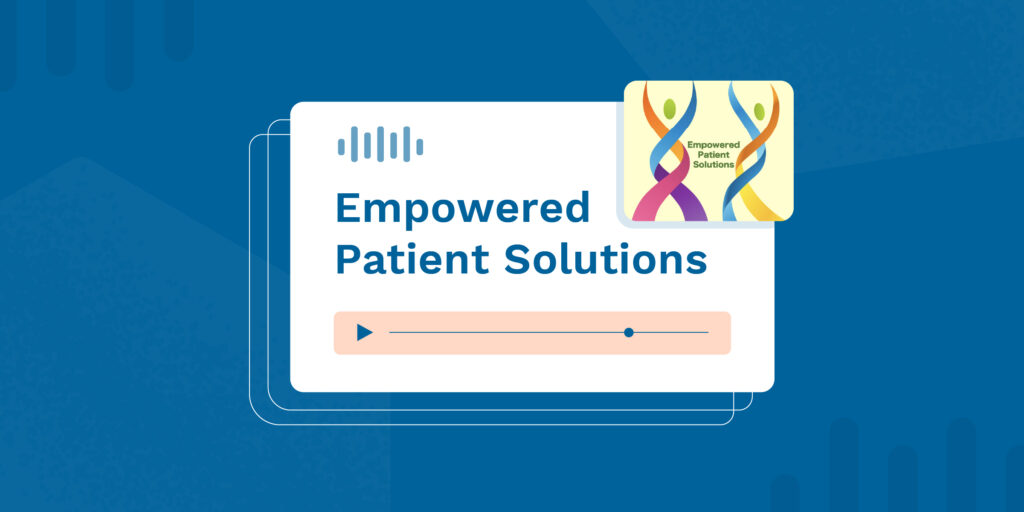Mental health conditions continue to be one of the leading causes of disability worldwide. Even pre-pandemic, over 25% of the U.S. population was affected by one or more mental health conditions at any one time. These soaring rates were heightened even more over the last year. According to the CDC, from August 2020 to February 2021, the percentage of adults with recent anxiety or depressive disorder symptoms increased, as did the percentage of individuals reporting unmet mental health care needs.
Mental health concerns are underreported but are often detected with comorbidities (e.g., chronic pain, obesity, COPD, etc.) most commonly in primary care settings. Additionally, many acute and chronic medical conditions involve health behaviors or psychosocial issues that can exacerbate symptoms or undermine treatment outcomes of comorbidities. Because of the high detection rates in primary care settings with co-concurring medical illness, primary care physicians (PCPs) are well-suited to diagnose issues and collaborate with mental health specialists for patient care. However, PCPs, physicians, and nurses often lack the time and training to assess and effectively treat mental health needs thoroughly; in this setting, coordinated, collaborative care is critical to the patient’s wellbeing.
What Is CoCM?
Collaborative care models (CoCM) provide a strategy to deliver integrated mental health and general medical care in primary care settings. CoCMs are a team-based, multicomponent intervention to enact care delivery. Collaborative care teams may include a primary care physician, a mental health specialist (social workers, psychiatric nurse practitioners, counselors, psychologists, and psychiatrists), and other physical medicine specialists who may be treating comorbidities or chronic conditions caused by mental health issues. In these cooperative settings, teams maintain accountability and share knowledge and training to provide the best possible outcomes for the patient.
The Evolution of Collaborative Care
Although research around collaborative care models began at the Gouverneur Health Program in New York in the 1970s, adoption has been slow. Yet, interest and research have continued to focus on the range of complex needs that collaborative care addresses. As a result, extensive research and positive results have led to higher adoption of the collaborative care model, particularly in the last 15 years.
Despite the evidence of positive outcomes, a barrier to coordinated, collaborative care has been effective payment models. In 2010, the Affordable Care Act (ACA) section 2703 Medicaid Health Home State Plan Option provided a mechanism to coordinate the primary, acute, behavioral, and long-term and social service needs of targeted beneficiaries. Since then, a variety of federal and commercial payers have started to provide coverage. This and other federal programs created an opportunity to coordinate payment.
In 2016, the American Psychiatric Association and the Academy of Psychosomatic Medicine (since renamed the Academy of Consultation-Liaison Psychiatry) issued a report and a public statement in support of collaborative care. “The evidence is clear that integrated care, and the Collaborative Care model shortlist in particular, can contribute to more effective care and better outcomes for patients with mental illness who are going to their primary care physicians for treatment,” said APA President Renée Binder, M.D. “This report will help standardize educational materials and effective implementation of the Collaborative Care Model.”
With a windfall of new laws, policies, and payments around mental health care, more payment options will be extended to collaborative care billing and payments in the near future.
New CPT Codes to Address the Collaborative Care Model
One of the new changes to support the collaborative care model is that primary care practices can now bill for these services using new CPT® codes for Psychiatric collaborative care management services.
The four new CoCM codes are:
- 99492 CoCM: to bill the first 70 minutes in the first initial month of collaborative care
- 99493 CoCM: to bill the first 60 minutes in any subsequent months of collaborative care
- 99494 CoCM: to bill each additional 30 minutes in any month
- G2214 CoCM: to bill for the first 30 minutes in the first month of care or any subsequent month
In order to qualify as providing active collaborative care, the practice must meet three core components:
- Provide active treatment and care management for an identified patient population
- Use a patient-tracking tool
- Use a registry to hold regular, systematic psychiatric caseload reviews
Check policies in your area to determine the federal and commercial plans that are providing coverage.
The Centers for Medicare and Medicaid Services (CMS) has provided a fact sheet and a shortlist of FAQs that describe CoCM services and their associated billing requirements, as well as information on a brief care management service (99484). Behavioral Health Integration (BHI) includes the following: 99492, 99493, 99494, and 99484. A breakdown of codes as well as supplementary information can be found on their site.
Care Coordination Strategies Can Improve Complex Health Conditions
Collaborative coordinated care provides the best outcomes for patients with complex health and social support needs. Evidence shows that a collaborative care model has been especially beneficial to vulnerable populations such as those with chronic conditions, the elderly, and working-age adults with disabilities. Results show that the model succeeds in improving patient safety, efficiency, and effectiveness.
For example, the U.S. Community Preventive Task Force examined outcomes for 69 depression clinical trials and found CoCMs were more effective than traditional care in improving depression symptoms, treatment adherence, remission and recovery from symptoms, quality of life, and satisfaction with care. Over 70 similar trials have been recorded for symptoms ranging from anxiety disorders to depression, and bipolar and collaborative care models have proven to provide an effective, pragmatic strategy to deliver integrated mental health and general medical care with positive long-term treatments and outcomes.
Despite the overwhelming need and evidence of coordinated care improving mental health outcomes and general medical outcomes, treatment is rarely employed with a coordinated approach. Primary care providers (PCPs) continue to encounter barriers to referring patients to specialty mental health treatments and have struggled with integrating the CoCM model into their current systems.
One reason is that staying up to date with systemic changes has proven especially challenging in the current healthcare climate. The medical field is overwhelmed, and adding another structural change can be daunting despite the evidence-based benefits of collaborative care. Technology can make a huge difference to lighten that load; to stay up to date with current billing codes in workflows and improve your patient outcomes, integrate software that regularly updates billing codes to ensure accuracy and quick reimbursement.
RXNT’s medical billing software stays up to date on new codes and shortens your billing cycle. That way, you can continue to focus on putting the patient first and improving mental and general health outcomes without placing an administrative burden on your staff. Contact us to find out how we can help facilitate collaborative, coordinated care at your practice.




